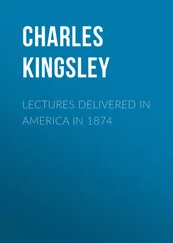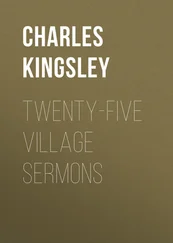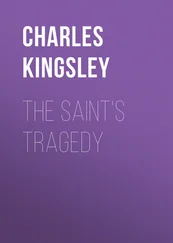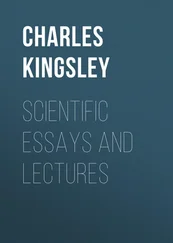Charles Kingsley - Yeast - a Problem
Здесь есть возможность читать онлайн «Charles Kingsley - Yeast - a Problem» — ознакомительный отрывок электронной книги совершенно бесплатно, а после прочтения отрывка купить полную версию. В некоторых случаях можно слушать аудио, скачать через торрент в формате fb2 и присутствует краткое содержание. Жанр: foreign_prose, foreign_antique, на английском языке. Описание произведения, (предисловие) а так же отзывы посетителей доступны на портале библиотеки ЛибКат.
- Название:Yeast: a Problem
- Автор:
- Жанр:
- Год:неизвестен
- ISBN:нет данных
- Рейтинг книги:4 / 5. Голосов: 1
-
Избранное:Добавить в избранное
- Отзывы:
-
Ваша оценка:
- 80
- 1
- 2
- 3
- 4
- 5
Yeast: a Problem: краткое содержание, описание и аннотация
Предлагаем к чтению аннотацию, описание, краткое содержание или предисловие (зависит от того, что написал сам автор книги «Yeast: a Problem»). Если вы не нашли необходимую информацию о книге — напишите в комментариях, мы постараемся отыскать её.
Yeast: a Problem — читать онлайн ознакомительный отрывок
Ниже представлен текст книги, разбитый по страницам. Система сохранения места последней прочитанной страницы, позволяет с удобством читать онлайн бесплатно книгу «Yeast: a Problem», без необходимости каждый раз заново искать на чём Вы остановились. Поставьте закладку, и сможете в любой момент перейти на страницу, на которой закончили чтение.
Интервал:
Закладка:
In the following pages I have attempted to show what some at least of the young in these days are really thinking and feeling. I know well that my sketch is inadequate and partial: I have every reason to believe, from the criticisms which I have received since its first publication, that it is, as far as it goes, correct. I put it as a problem. It would be the height of arrogance in me to do more than indicate the direction in which I think a solution may be found. I fear that my elder readers may complain that I have no right to start doubts without answering them. I can only answer,—Would that I had started them! would that I was not seeing them daily around me, under some form or other, in just the very hearts for whom one would most wish the peace and strength of a fixed and healthy faith. To the young, this book can do no harm; for it will put into their minds little but what is there already. To the elder, it may do good; for it may teach some of them, as I earnestly hope, something of the real, but too often utterly unsuspected, state of their own children’s minds; something of the reasons of that calamitous estrangement between themselves and those who will succeed them, which is often too painful and oppressive to be confessed to their own hearts! Whatever amount of obloquy this book may bring upon me, I shall think that a light price to pay, if by it I shall have helped, even in a single case, to ‘turn the hearts of the parents to the children, and the hearts of the children to the parents, before the great and terrible day of the Lord come,’—as come it surely will, if we persist much longer in substituting denunciation for sympathy, instruction for education, and Pharisaism for the Good News of the Kingdom of God.
1851.
CHAPTER I: THE PHILOSOPHY OF FOX-HUNTING
As this my story will probably run counter to more than one fashion of the day, literary and other, it is prudent to bow to those fashions wherever I honestly can; and therefore to begin with a scrap of description.
The edge of a great fox-cover; a flat wilderness of low leafless oaks fortified by a long, dreary, thorn capped clay ditch, with sour red water oozing out at every yard; a broken gate leading into a straight wood ride, ragged with dead grasses and black with fallen leaves, the centre mashed into a quagmire by innumerable horsehoofs; some forty red coats and some four black; a sprinkling of young-farmers, resplendent in gold buttons and green; a pair of sleek drab stable-keepers, showing off horses for sale; the surgeon of the union, in Mackintosh and antigropelos; two holiday schoolboys with trousers strapped down to bursting point, like a penny steamer’s safety-valve; a midshipman, the only merry one in the field, bumping about on a fretting, sweating hack, with its nose a foot above its ears; and Lancelot Smith, who then kept two good horses, and ‘rode forward’ as a fine young fellow of three-and-twenty who can afford it, and ‘has nothing else to do,’ has a very good right to ride.
But what is a description, without a sketch of the weather?—In these Pantheist days especially, when a hero or heroine’s moral state must entirely depend on the barometer, and authors talk as if Christians were cabbages, and a man’s soul as well as his lungs might be saved by sea-breezes and sunshine; or his character developed by wearing guano in his shoes, and training himself against a south wall—we must have a weather description, though, as I shall presently show, one in flat contradiction of the popular theory. Luckily for our information, Lancelot was very much given to watch both the weather and himself, and had indeed, while in his teens, combined the two in a sort of a soul-almanack on the principles just mentioned—somewhat in this style:—
‘ Monday , 21 st .—Wind S.W., bright sun, mercury at 30½ inches. Felt my heart expanded towards the universe. Organs of veneration and benevolence pleasingly excited; and gave a shilling to a tramp. An inexpressible joy bounded through every vein, and the soft air breathed purity and self-sacrifice through my soul. As I watched the beetles, those children of the sun, who, as divine Shelley says, “laden with light and odour, pass over the gleam of the living grass,” I gained an Eden-glimpse of the pleasures of virtue.
‘ N.B . Found the tramp drunk in a ditch. I could not have degraded myself on such a day—ah! how could he?
‘Tuesday, 22d.—Barometer rapidly falling. Heavy clouds in the south-east. My heart sank into gloomy forebodings. Read Manfred , and doubted whether I should live long. The laden weight of destiny seemed to crush down my aching forehead, till the thunderstorm burst, and peace was restored to my troubled soul.’
This was very bad; but to do justice to Lancelot, he had grown out of it at the time when my story begins. He was now in the fifth act of his ‘Werterean’ stage; that sentimental measles, which all clever men must catch once in their lives, and which, generally, like the physical measles, if taken early, settles their constitution for good or evil; if taken late, goes far towards killing them. Lancelot had found Byron and Shelley pall on his taste and commenced devouring Bulwer and worshipping Ernest Maltravers . He had left Bulwer for old ballads and romances, and Mr. Carlyle’s reviews; was next alternately chivalry-mad; and Germany-mad; was now reading hard at physical science; and on the whole, trying to become a great man, without any very clear notion of what a great man ought to be. Real education he never had had. Bred up at home under his father, a rich merchant, he had gone to college with a large stock of general information, and a particular mania for dried plants, fossils, butterflies, and sketching, and some such creed as this:—
That he was very clever.
That he ought to make his fortune.
That a great many things were very pleasant—beautiful things among the rest.
That it was a fine thing to be ‘superior,’ gentleman-like, generous, and courageous.
That a man ought to be religious.
And left college with a good smattering of classics and mathematics, picked up in the intervals of boat-racing and hunting, and much the same creed as he brought with him, except in regard to the last article. The scenery-and-natural-history mania was now somewhat at a discount. He had discovered a new natural object, including in itself all—more than all—yet found beauties and wonders—woman!
Draw, draw the veil and weep, guardian angel! if such there be. What was to be expected? Pleasant things were pleasant—there was no doubt of that, whatever else might be doubtful. He had read Byron by stealth; he had been flogged into reading Ovid and Tibullus; and commanded by his private tutor to read Martial and Juvenal ‘for the improvement of his style.’ All conversation on the subject of love had been prudishly avoided, as usual, by his parents and teacher. The parts of the Bible which spoke of it had been always kept out of his sight. Love had been to him, practically, ground tabooed and ‘carnal.’ What was to be expected? Just what happened—if woman’s beauty had nothing holy in it, why should his fondness for it? Just what happens every day—that he had to sow his wild oats for himself, and eat the fruit thereof, and the dirt thereof also.
O fathers! fathers! and you, clergymen, who monopolise education! either tell boys the truth about love, or do not put into their hands, without note or comment, the foul devil’s lies about it, which make up the mass of the Latin poets—and then go, fresh from teaching Juvenal and Ovid, to declaim at Exeter Hall against poor Peter Dens’s well-meaning prurience! Had we not better take the beam out of our own eye before we meddle with the mote in the Jesuit’s?
Читать дальшеИнтервал:
Закладка:
Похожие книги на «Yeast: a Problem»
Представляем Вашему вниманию похожие книги на «Yeast: a Problem» списком для выбора. Мы отобрали схожую по названию и смыслу литературу в надежде предоставить читателям больше вариантов отыскать новые, интересные, ещё непрочитанные произведения.
Обсуждение, отзывы о книге «Yeast: a Problem» и просто собственные мнения читателей. Оставьте ваши комментарии, напишите, что Вы думаете о произведении, его смысле или главных героях. Укажите что конкретно понравилось, а что нет, и почему Вы так считаете.












